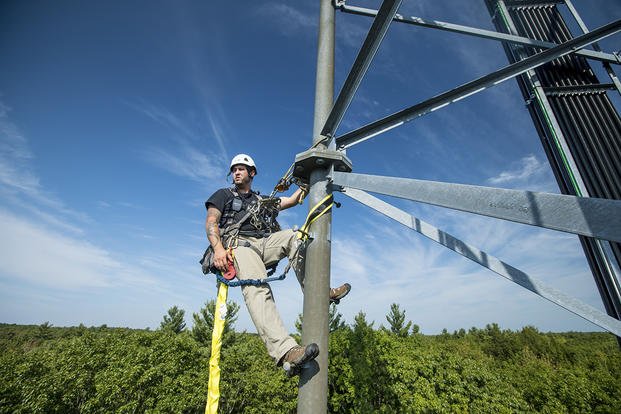Navigating through the fear and fog of a military-to-civilian transition is not something most veterans are prepared for. Despite the best intentions of the Transition GPS programs, most fall short of adequately preparing our military with the tools and insights needed to compete effectively post-service.
Whether you transitioned recently or 10 years ago, a job search requires careful planning and strategy. For the past five years, I have worked with hundreds of veterans, veterans service organizations and corporations seeking to hire former military. Here are some common mistakes many veterans are making in the job search:
- Pursuing a civilian job or career without a vision or strategy. Your actions should map against a strategy that outlines where you are today, where you want to get and how you will get there (in detail).
- You talk about "we" when describing successes and accomplishments. Interviewers and hiring managers don't want to hear what your platoon or unit did that you are proud of; they want to know about you. The interviewer wants you to speak of your own accomplishments with confidence, even though you might feel awkward or uncomfortable.
- You haven't crafted a compelling and interesting answer to, "So, what do you do?" Develop an elevator speech to articulate 1. What you do (or are looking to do); 2. What makes you unique (your value proposition); and 3. Give an example or story that illustrates the value you offer an employer.
- Similarly, you answer the question, "What kind of work are you seeking?" with, "I can do anything ..." In the military, you performed many different types of duties, all likely very well. In the civilian world, it does not suffice to say you could do whatever someone needs of you. You need to be clear, focused and relatable with the skills you have and the opportunity someone has for you.
- You don't know who you want to work for. Create a list of criteria for the kinds of companies you'd like to work for. Where are they located? How do they hire? Who do you know who works there? How can you network into the company?
- Your LinkedIn profile is a mess. Recruiters and hiring managers all look through LinkedIn. They want to see how you are positioning yourself, talking about your interests and differentiating yourself as a valuable asset. Does your LinkedIn profile contain personal information (your birthdate, marital status, photo of your spouse)? Is your profile still military-centric (from your profile headshot to the groups you're active in)? Are you lacking endorsements and recommendations that speak to your value and contribution?
- You post negative comments, photos or rants online. Nothing remains private if you post into a cell phone, tablet or computer (ever heard of a screen capture?). If you complain about the transition or specific companies' recruiting processes or individuals, rest assured that recruiters will see it and limit your options.
- You use one resume for every job application. Your resume should speak directly to the unique requirements of the job for which you are applying and the culture of the company and industry you seek to work in. This means several versions of a resume are typically warranted.
- You have not enlisted the support of your friends, colleagues and civilian contacts. Networking might feel slimy to you, because it implies you are asking someone to do something for you (implying vulnerability). In reality, networking is a critical aspect to civilian career success. Let the people around you help you. Then find ways to show gratitude to those who help.
- You don't have a business card. The day you leave service, get a simple business card printed with your name, email and cellphone number listed on it. If you have a clear area of job focus, include it. If not, then keep it general until you have more focus. It is imperative that you hand out a business card when you meet someone new.
- You approach interviews unprepared. Whether in person or by phone, a job interview is a formal meeting. You should be prepared with information about the company and the individuals you will meet, as well as questions about the company and the position for which you are applying. Most of this information can be gained by online research.
- You greet each interviewer with a "Sir" or "Ma'am." I'm a fan of formality; in fact, I taught my kids to always address people as Sir and Ma'am. But when a veteran repeats these salutations in an interview, it could reinforce a formality and rigidity perceived as off-putting to civilian hiring managers.
The process of transitioning from a military career to a civilian one is not easy, but it is workable. Create a strategy, based on understanding and authenticity, and work that plan until it produces the results you seek. Your other option is to leave the transition to chance, and that's not in your DNA as a veteran.
Find the Right Veteran Job
Whether you want to polish your resume, find veteran job fairs in your area or connect with employers looking to hire veterans, Military.com can help. Sign up for a free Military.com membership to have job postings, guides and advice, and more delivered directly to your inbox.







